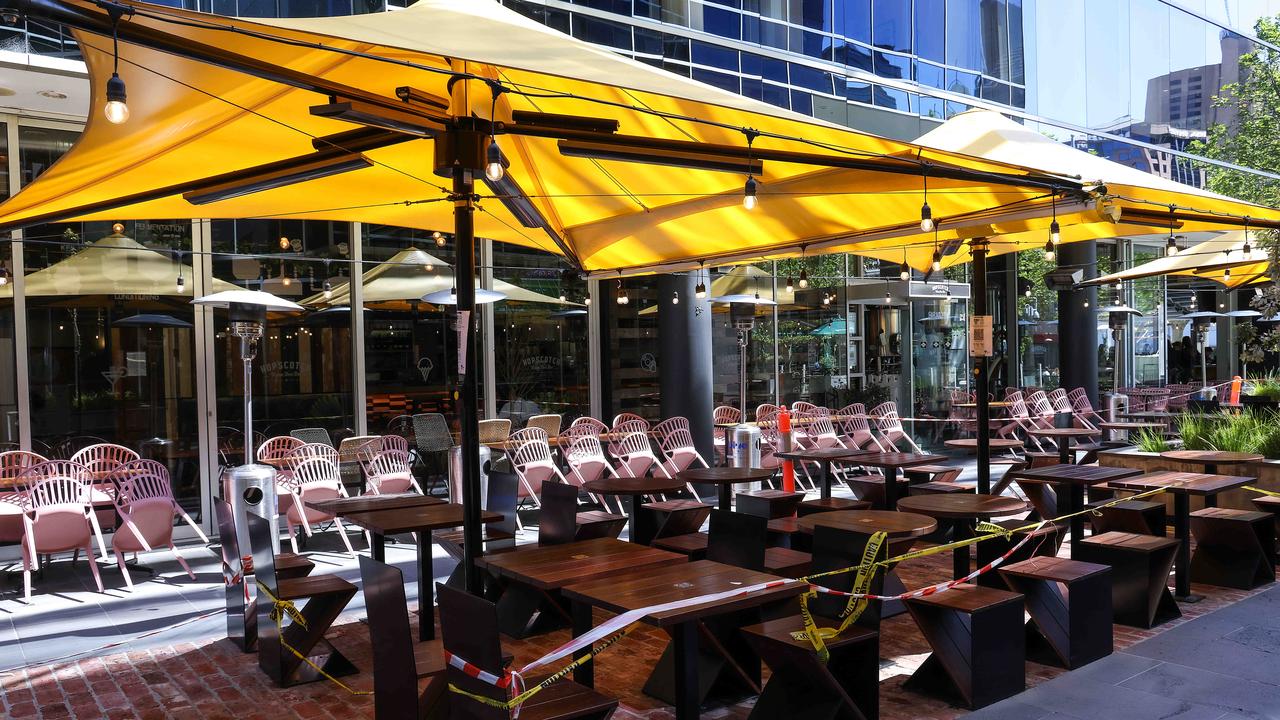
In the centre of world capital markets, New York, that fear takes on an extra dimension: the traders are now personally scared because the virus has hit New York hard, with more to come.
In Australia, our traders don’t have same personal fear that we are seeing on the New York trading floor. But our commercial and residential property markets, including small property investors, are now really scared. That fear is not yet in the official figures but there appears to be a significant decline in sales volume and price ahead.
In New York the share market’s first quarter was about statistics. The market had its worst first quarter performance of all time and the biggest quarterly fall since 1987.
But at the opening of first trading day of April you could see the personal fear among traders. On the opening they plunged the market 4 per cent. Later there were the usual gyrations. But the big closing rally that characterised so many trading days in the first quarter was not there and the market closed down 4.4 per cent. And the current quarter looks like getting a lot rougher as the impact of the virus on corporate trading spreads.
Dead cat bounce
Today’s fall in New York will generate selling pressure in Australia and endanger the recent rally which is in clear danger of becoming a “dead cat bounce”.
An early signal of trouble was the fall in the Australian dollar.
What makes the Australian market so vulnerable in coming weeks is that the big industry superannuation funds normally step in as buyers and stabilise the market. But they have been selling in the rally to fund the superannuation withdrawals and are unlikely to be anything more than token buyers in today’s fall.
And given New York is the world capital market centre, the New York fear will affect global money flow over a much wider area than the US. Raising global capital is now not easy and the major amount of loan capital has been directed towards the shale oil industry is in jeopardy. .
Around the world oil storage could reach maximum capacity within weeks because Saudi Arabia is ramping up production. Goldman Sachs has warned the coronavirus shock is “extremely negative for oil prices and is sending landlocked crude prices into negative territory”.
Who could have dreamt that we would have negative oil prices?
In Australia parts of our gas industry faces a deep crisis, particularly in Queensland.
Property quandary
That’s the public face of the crisis. The hidden crisis is in property, particularly among smaller operators.
I had a call from a smaller Queensland investment manager saying that almost all his sites have had correspondence from tenants demanding rent relief. Some of those tenants were listed public companies that were prospering.
He is going to negotiate tenant by tenant, but he can’t evict anyone for six months. The manager says by banning evictions for six months the government has pulled the rug out of his negotiating position.
Self-managed superannuation funds that are among his investors will cop lower income.
One small store property manager says that the six month moratorium on eviction proceedings means that many tenants are now refusing to pay rent for six months. At the end of the six months he might evict them but then he must find a new tenant. This means he has to renegotiate his loans, which were not always from banks. .
There is a very similar situation taking place in residential real estate, with people whose incomes have been sustained still acting tough with landlords. Many investors are 100 per cent borrowed – never a good idea – but the banks were ‘generous’ in the boom. .
The landlords are often ordinary Australians who did not trust the stock market and they must now ask for a loan extension to meet payments. These are available but over time the increased borrowing must be repaid.
Residential falls
The income fall is only part of the pain. What few highlight is the fact that the real value of the residential and commercial properties has been reduced by the rent revolt.
In the residential real estate market, one of the earliest signs that there is a huge fall in volume coming comes from those that dress up a house in preparation for sale. Operators in this area in Melbourne are seeing a big fall in demand. One told me turnover is down 60 per cent because potential sellers fear that there are few buyers around.
The looming fall in supply will cushion the official falls in value but eventually the supply will break out. Many investors will have to quit. It always takes the property market a while to come into line with falls in the share market. But the first sign of big trouble is often a slump in supply which the housing stylists are flagging.
But there are some encouraging stories. With so many people working at home demand for domestic power is soaring. And people believe that it will end so Qantas points can generate sales.




Fear has become the new force in capital markets around the globe.